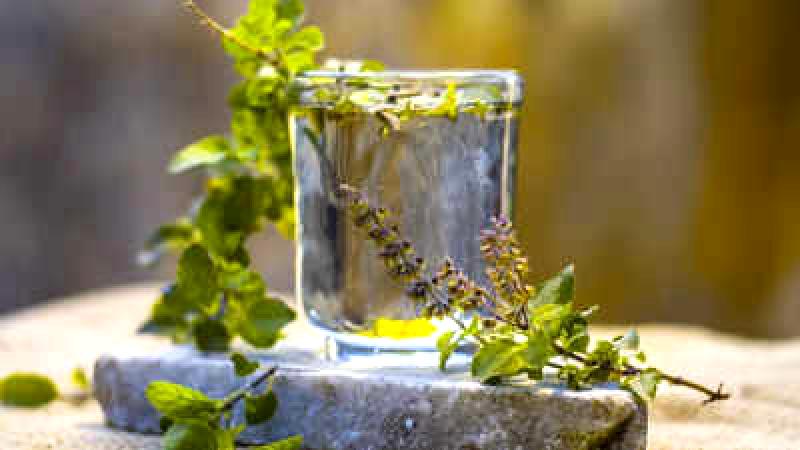
Tulsi, also known as Holy Basil, has a rich history spanning thousands of years and is highly valued for its robust medicinal properties. Known as Vishnupriya due to its association with Lord Vishnu, this herb is mentioned in ancient texts, underscoring its religious significance and therapeutic benefits utilized for treating diverse ailments for centuries. Belonging to the Lamiaceae family, Tulsi is a key component in Ayurvedic medicine and is employed for managing respiratory issues, viral infections, and more. Each part of the Tulsi plant, scientifically referred to as Ocimum sanctum Linn, is utilized in traditional medicine, including the leaves, stem, flowers, roots, and seeds. Tulsi is renowned for a myriad of health advantages, such as enhancing immunity, alleviating stress, enhancing digestion, detoxifying the liver and kidneys, promoting respiratory well-being, and regulating blood sugar levels. Tulsi leaves can be directly chewed for quick relief from coughs and colds, or infused in boiling water for a delightful tea. Infused Tulsi water can be consumed daily on an empty stomach. Furthermore, Holy Basil leaves can serve as a flavorful addition to salads, cheeses, meats, pesto, and egg dishes. Tulsi water offers various benefits, such as alleviating colds, coughs, and sore throats, making it particularly beneficial during the rainy season. Boiling Tulsi leaves in tea and water can help combat fevers from diseases like dengue, malaria, and the flu. The leaves can also be blended with honey to create an Ayurvedic cough remedy that aids in expelling respiratory mucus and provide relief from sore throats. Tulsi water can also be used as a gargle. In addition, Tulsi's therapeutic characteristics can be advantageous for individuals with kidney stones. Those with renal stones often consume Tulsi leaf juice with honey as per Ayurvedic recommendations.Assisting in the removal of kidney stones over six months, tulsi helps regulate blood sugar levels and may reduce fasting glucose, cholesterol, and triglyceride levels in individuals with diabetes. Research suggests that consuming two to three tulsi leaves or a tablespoon of tulsi juice on an empty stomach can aid in lowering blood sugar. Furthermore, tulsi's anti-bacterial, anti-inflammatory, and anti-viral properties make it beneficial for treating skin infections, such as fungal conditions and skin disorders like leukoderma. Tulsi's adaptogenic properties may help manage stress, mood swings, and promote mental clarity. Additionally, its vitamin C and antioxidant content, including eugenol, can protect the heart from free radicals, and its high potassium levels make it an effective option for reducing blood pressure. For best results, consuming holy basil on an empty stomach daily for four to six weeks is recommended to experience its benefits.











